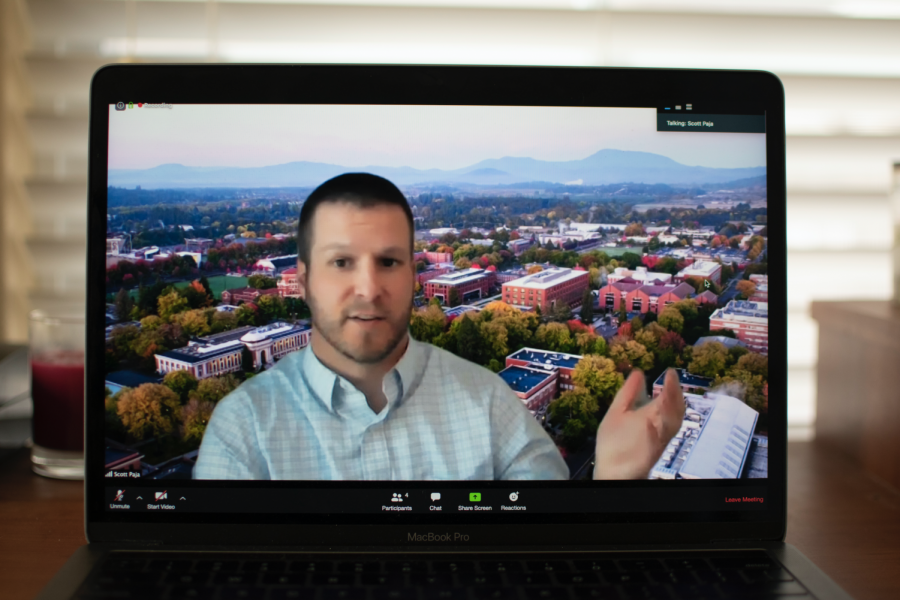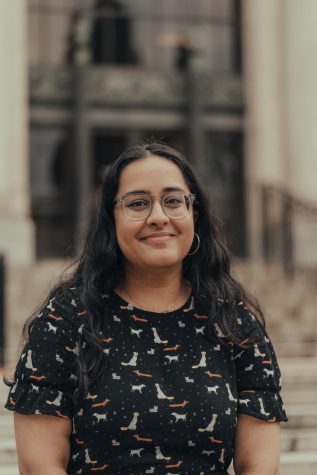Students face uncertainty in internship, research plans, OSU works to provide more remote opportunities
May 5, 2020
Due to the COVID-19 pandemic stalling future plans, many students are dealing with the loss of summer internships and the suspension of in-person research.
In the past few months, social distancing has forced many employers and faculty advisers to cancel internships and postpone on-going research that would require on-site work. Many students were hit hard by these decisions, with their summer plans canceled and the prospect of continuing work in the fall in doubt as well.
“I think it was right towards the end of February,” said Zachary Amavisca, a fourth-year mechanical engineering major at Oregon State University who had planned to complete his second internship with Daimler through the Multiple Engineering Cooperative Program this summer. Once COVID-19 hit Oregon, Amavisca received an email saying the internship would be delayed indefinitely.
The MECOP program puts engineering students into six-month-long internships in their junior and senior years.
Amavisca’s internship would have been six months long, but since the internship was delayed, he and his mentor agreed that it would be best to take spring classes instead. Amavisca will now be able to graduate in June, but he said he is unsure about whether or not the internship will still happen, and how his graduation will affect that.
“My work hours at my university job were cut, because of everything so I had to get a second job. I was kind of expecting this internship to be my main source of income for spring and summer, but obviously that didn’t happen,” Amavisca said, though he is understanding of the circumstances surrounding these decisions.
Other students have been experiencing similar difficulties.
Ammara Molvi, a fourth-year major in public health, planned to graduate in the spring, but her thesis and a mandatory health practicum pushed it back. Since the practicum required her to volunteer in the community and make contact with community members, she had to postpone that as well.
“Because I’m graduating this year, I planned to defend in the spring. Hopefully, if things get better during the summer, I’ll be able to gather more primary data for my thesis and then defend in the fall,” Molvi said.
For Molvi, gathering data was the most important part, since her research was centered around person-to-person oral history.
“With a lot of these communities you have to meet them where they’re at, so it’s hard to do that over Zoom, and I don’t want to put someone else’s well being on the line just for my thesis,” Molvi said.
Molvi said she feels lucky to be a student worker on campus who is able to keep her job and hours. Molvi works for the Associated Students of Oregon State University and said she is familiar with the resources OSU offers students.
“All my professors have been really helpful, not only have they made sure that I’m still learning the best that we can through remote learning, [but] they’re also checking in to see how me and my peers have been doing on a personal level. I think teachers and other campus resources are doing a good job in trying to adapt to make sure students are still doing okay,” Molvi said.
Considering the way the pandemic has affected employment, and with the 2020-21 school year approaching, many students are worried about future internship opportunities.
“Given the fact that most of the country and the world is working remotely, a lot of internships are not necessarily conducive to that type of environment, nor do companies know how to necessarily support interns in the way that they normally do, in a traditional summer internship,” said Brandi Fuhrman, executive director of Career Development at OSU.
According to Fuhrman, not all internships have been canceled. She said she believes that many companies are working hard to figure out how they can support students, since they rely on internships as a part of their recruitment process, though there is a decline.
“Big picture, it’s gonna be a tough time for a lot of these organizations who employ our students. They’re working through exercises to determine what their budgets look like, and what their actual operations look like, and whether they can support, both financially and with a meaningful experience, an internship for one of our students,” said Scott Paja, assistant dean for Experiential Learning & Employer Relations for the College of Engineering, adding that some OSU departments are working with foundation partners to provide compensation to support students.
“We have within the university, with the college of engineering being a part of that, been working with our foundation partners on a specific fundraising campaign to help students who have been negatively impacted by the COVID-19 escalation,” Paja said. “The companies basically are committed to any students who are impacted, any expenses that they incurred. So if they signed a new lease, if they had moving expenses, and then their internship was canceled, the company actually pays the student to level them up. In terms of ongoing compensation, that’s case-by-case in whether a company has any interest.”
According to Fuhrman, within the last two weeks, OSU onboarded a partnership with Parker Dewey, a company that acts as a middleman between companies that provide micro-internships, which are smaller than full-length internships and can range from a couple of hours to a few weeks of work.
The micro-internships do not fit the traditional eight-to-12-week internship that a student might get, but it allows students to work remotely with different organizations that will give them great work experience, according to Fuhrman.
“Remain optimistic. Leverage your resources, whether it’s the Career Development Center, staff, other mentors and people that you feel can help support you. Lean on them,” Fuhrman said.

























































































































